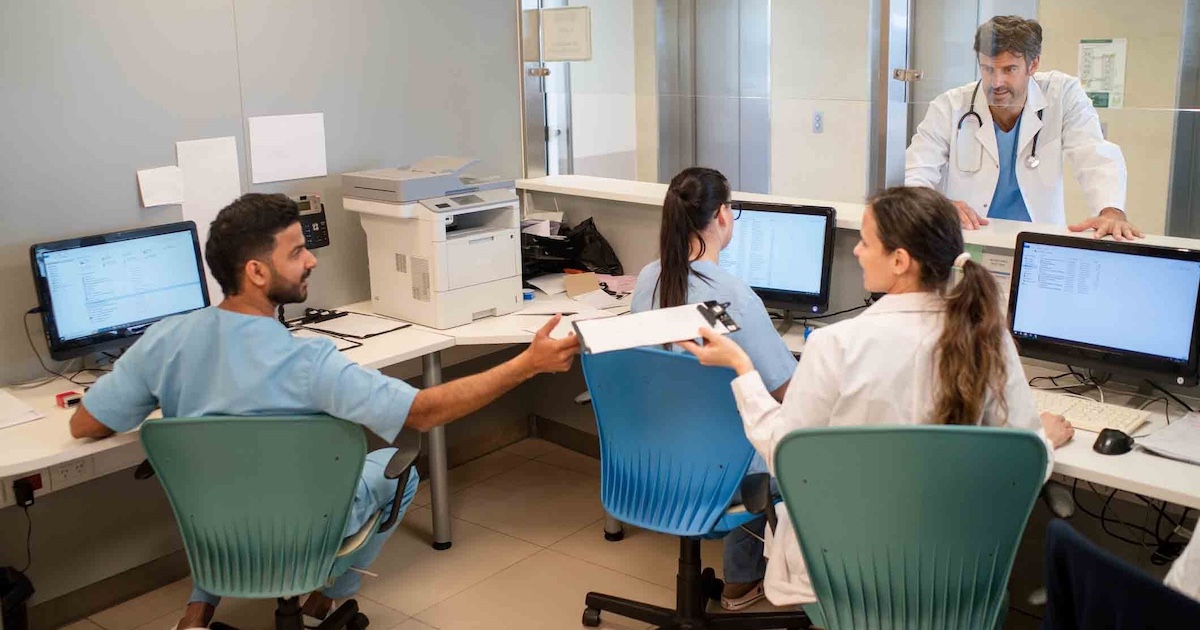What do bank robbers and healthcare executives have in common? To Alan Dabbiere, they're both living on borrowed time.
While the bank robber thinks it's all OK until you're caught, Dabbiere says too many hospital and health network executives are applying the same rules to mobile device management and security. The chairman of AirWatch, an Atlanta-based developer of MDM platforms, says they're putting off or ignoring security for all those smartphones, tablets and laptops coming into and going out of their hospitals and clinics with the hope that they'll never experience a breach of data.
'The problem is, you never see a breach coming," Dabbiere says. "And once it happens, you end up paying for it."
"If you're not securing and managing mobile, you're greatly exposed," he adds. "And then it's only a matter of time before you regret it."
Billed as one of the largest MDM companies in the world, AirWatch is taking an aggressive stance in pursuing the healthcare market, which Dabbiere feels is filled with too many "wait-and-see" organizations and not enough early adopters. The company is touting case studies with top-of-the-line providers like the Henry Ford Health System in Detroit and Chicago's Advocate Health Care, and also supports more than 100 divisions of the UK's National Health Service.
Statistics have shown that more than 70 percent of all doctors use their smartphones for at least some of their business, and more than 40 percent are also using tablets. In 2012 alone, AirWatch officials said, tablet use by doctors doubled from the beginning of the year to the end of the year, with more than two-thirds accessing videos.
According to Dabbiere, the list of lapses by healthcare providers is long. They're not setting strong passwords, they're not protecting e-mail attachments, and they're not managing Wi-Fi and VPN credentials. In addition, he says, they're not keeping track of all the applications being accessed and used by clinicians on mobile devices, where even a Wi-Fi or Bluetooth connection to a printer can lead to a serious breach.
"You might think you're secure, but you aren't, and I think many providers aren't even aware of the threats that are out there," he says. "The expansion of the use of mobile (in and out of the healthcare setting) is just adding to the complexity of the problems, and that exacerbates and complicates the security process."
At Henry Ford, a Michigan-based system with five hospitals and more than 30 outpatient clinics, AirWatch was called in to help develop an MDM platform. Michael Starosciak, the system's chief technical services officer, said clinicians had been exclusively using BlackBerry devices for years, but have been moving toward iOS and Android platforms as of late.
"What we're finding is that in the caregiver community, everyone wants a tablet," Starosciak said in a case study issued in 2012 by AirWatch. "The challenge for us is how do we provide that service while still meeting our regulatory and corporate requirements?"
More recently, AirWatch developed an MDM platform for Advocate's 35,000 physicians, nurses and other staff, using roughly 1,000 mobile devices. Dabbiere says Advocate is a longtime partner of AirWatch that is just now developing a "bring-your-own-device" strategy. To that end, the company provides Advocate with full device protection, password enforcement and asset tracking services.
"The safety AirWatch supplies is incredible, and we know that our clinical information is protected," said Cathy Graykowski, Advocate's lead system administrator, in a case study supplied by AirWatch. "One of our top executives had his tablet stolen out of his office. We didn't panic because we knew we could easily do a device wipe of all sensitive information."
"Things are much more productive with the tablets. It's a major time-saver to have ready access to information and the ability to read e-mail on the go," Graykowski added.
Dabbiere says Henry Ford and Advocate are two examples of healthcare providers who understand the dangers of an incomplete MDM platform, but they're few and far between. He estimates less than half of the nation's providers are up to speed, and expects AirWatch and other MDM companies will be busy in the coming year – especially if news accounts keep surfacing of lost or stolen mobile devices filled with sensitive health information.
"Too many think there's no perfect solution out there, so having no solution at all is just as good," he says.


